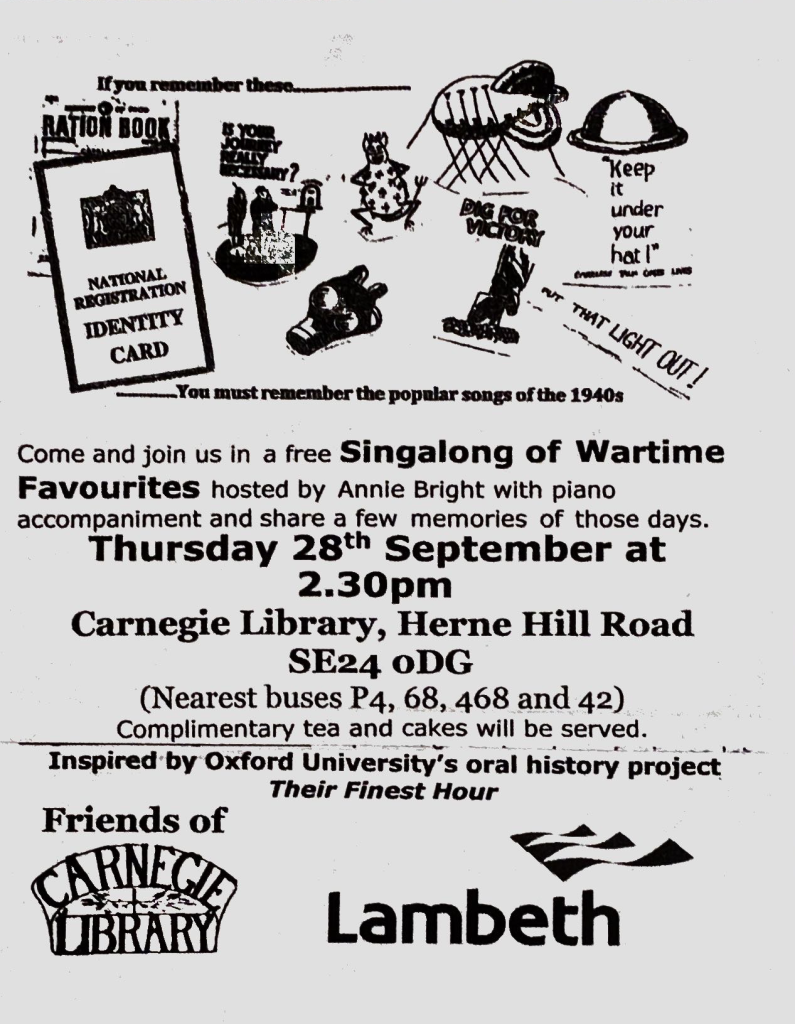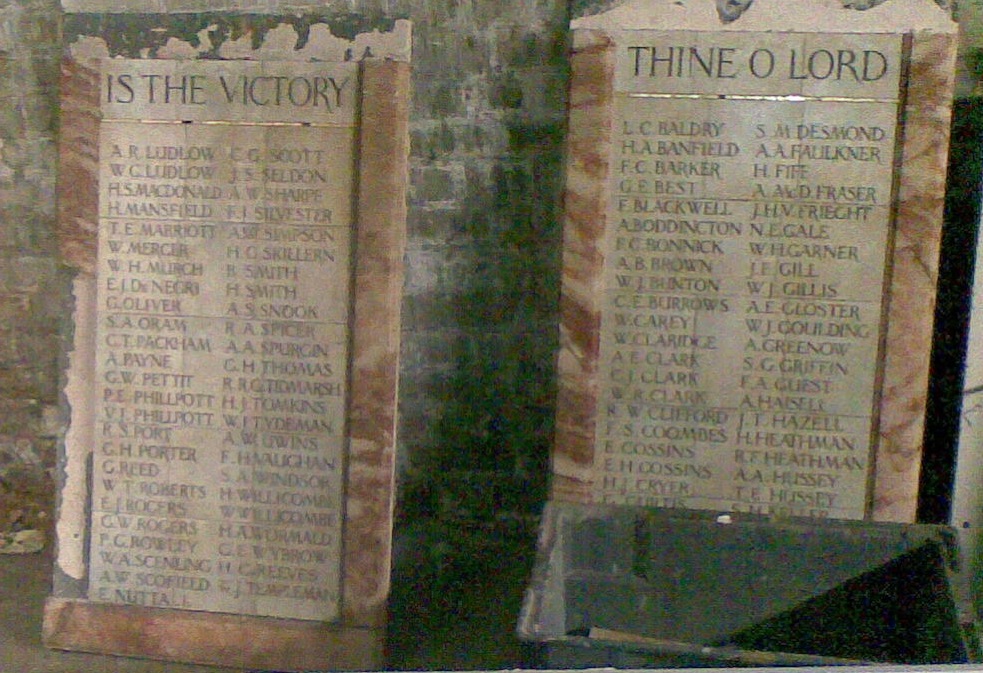Singalong of wartime favourites, with Annie Bright -
Thursday at 2:30 pm 28 September
Songs...stories...memories

The Friends are working as community partner with Lambeth Archives on a project to restore the memorials formerly in Carnegie Library basement. Having discovered them there many years ago, we felt it was a shame to leave them on the floor gathering dust. Liaising with Herne Hill Society, we met with one of the Lambeth Archives managers in 2009 to list and photograph them, with the idea of cataloguing them and trying to learn their provenance. When the library was closed and preparations being made to excavate the basement and clear out the building, we expressed concern that the memorials needed to be carefully moved to a place of safety and their future ensured. They are in Brixton Library basement for now.

St Saviour’s Church was demolished in 1981, the same year the library and the parish hall were listed Grade 2. Its memorials were taken down and stored in the library undercroft alongside plaques from All Saints Church, South Lambeth and elsewhere. We are working with Lambeth Archives staff to secure funding to restore all the memorials. Conservation specialists Taylor Pearce have given advice and City & Guilds of London Art School are interested; the War Memorials Trust may be able to offer match funding.
The restoration project includes workshops about conservation, research, and community memory. At the end of the project it is hoped that the fully-restored memorials will go on display.
Lambeth has been pursuing the current round of library closures on and off since 1999, saying that ten libraries should be reduced to five "Town Centre Libraries" or "Centres of Excellence," though in fact six of the ten libraries are threatened with permanent closure:
| Carnegie Library | Closed since March 2016. Proposed temporary funding as a gym, library and "church hall." |
| Durning Library | Temporarily reprieved from closure. No longer funded from the Libraries budget but instead funded one month at a time from an undisclosed Council budget. |
| Minet Library | A limited library service is being provided pending relocation of the borough's archives, which are housed in the same building. |
| Tate South Lambeth Library | As Durning Library |
| Upper Norwood Library Hub | Surviving on temporary funding from Croydon and Lambeth Councils which is due to expire two months after the Council Elections. |
| Waterloo Library | Currently housed in a small room temporarily available behind a cafe in an Evangelical Christian Centre. |
Public opposition has kept the Council at bay for the past 19 years and Defend the 10 are continuing a determined campaign to keep all the libraries.
Although Lambeth's current plans for our library are unworkable, Carnegie Library Association have produced a fully-costed business plan which uses the income-generating potential of the building to cover its costs and produce a surplus to buy in a library service from Lambeth in the spaces we had before closure. Lambeth have rejected the plan so far but the Association continue to offer it and make clear that they are ready to take over the whole building.
The current work to the basement will reduce its rental value because the basement office previously used by the library Home Visit Service would be lost. This loss would only be partly compensated for by the excavation increasing by 150% the lettable area of the windowless part of the basement. However, the overall amount concerned is only about £3 500 a year and not therefore of great importance.
Fortunately most of the changes Lambeth plan to the ground floor are reversible by a combination of voluntary and paid work. The necessary money should be easy to crowd fund because the Association has hundreds of members and many more local people want the library back on a long-term genuinely sustainable basis.